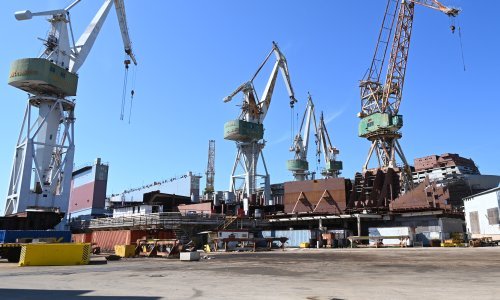The drop in the credit rating of Italian banks, including two that operate in Croatia, should not worry their depositors and they can be calm, Croatian Finance Minister Slavko Linic said in Brussels on Tuesday.
Linic made the statement when asked to comment on the US rating agency Moody's lowering the rating of 26 Italian banks, including two that operate in Croatia, Intesa San Paolo and Unicredit.
Croatian National Bank deputy governor Boris Vujcic, who was accompanying Linic on his visit to Brussels, said the drop in the rating of Italian banks was due to the deteriorated quality of their current assets, an increasingly bad environment in the euro zone, and the financing conditions on the markets.
Nevertheless, that is not something Croatian depositors should worry about because those banks, at least those that are present in Croatia, still have a sufficiently good rating, said Vujcic.
Linic and Vujcic were attending a meeting of EU finance ministers which discussed, among other topics, the pre-accession economic programmes (PEP) of Croatia, as an acceding country, and of candidate-countries.
Linic said that Croatia's PEP, which is made for a period of two years, received a passing grade from EU finance ministers.
Commenting on the differing estimates of Croatia's GDP growth from the Croatian government and the European Commission, Linic said that the government projected a 0.8 percent GDP growth rate for this year, while the EC announced a 1.2 percent drop in its economic forecast.
The minister said that the forecasts did not take into account the investments to be launched by the government this year.
"The government expects a 7% increase in investments this year, and that is the main reason for the differing forecasts. It is up to the government to do its best because growth is primarily expected in state investments in the power supplier HEP, INA, the railways, in water supply systems and wastewater purification systems. The government can control all those investments through its ministers," Linic said, adding that it was up to the government to show that such a big change could be accomplished in one year.
The minister said that the planned investments had to do primarily with planned cuts in the import of electricity, natural gas and oil products rather than with exports, and that therefore they would depend much less on the external environment.
As for the possibility of Greece leaving the euro zone, Linic said that it would have no impact on Croatia's position and that he did not expect a chain reaction or a spillover of the crisis to other members of the euro zone.




































